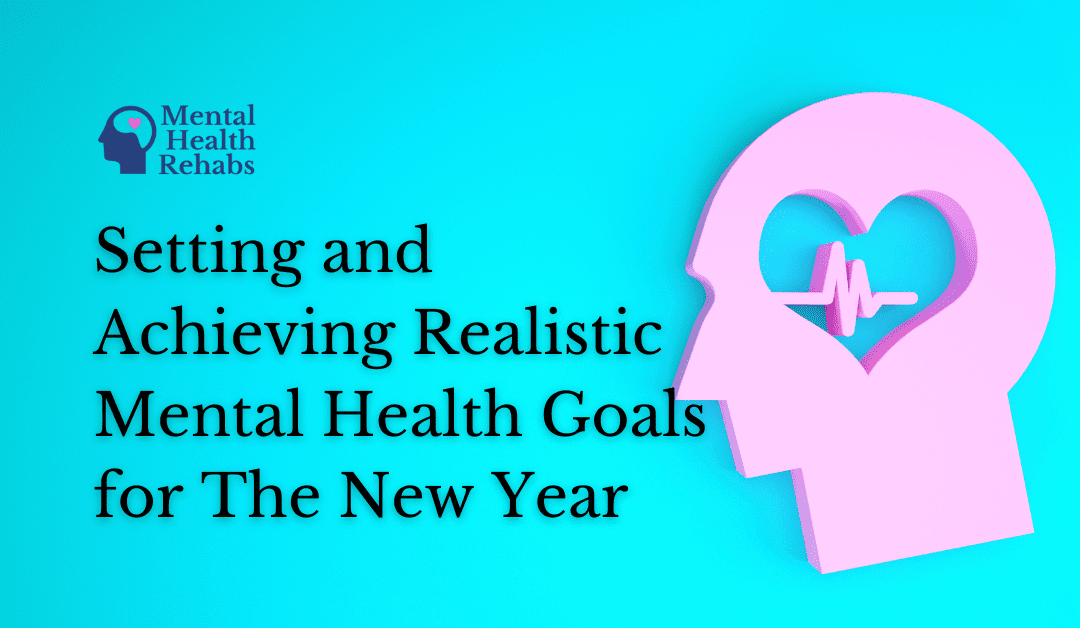Health is usually top of mind when New Year’s rolls around. Resolutioners flock to the gym in droves, crowd produce aisles in grocery stores, and stock up on vitamins and supplements with optimistic fervor. That’s all well and good, but there’s more to health than just the physical. Make this the year you prioritize your mental health, too. To get you started, follow this easy-to-follow 2024 mental health checklist (which doubles as a great idea for New Year’s resolution ideas).
8 Ways to Take Care of Your Mental Health in 2024
Develop a more positive mindset
Your perspective plays a crucial role in how you perceive the world. In a bad mood? You’re more likely to think people are acting like jerks and, in turn, to be grumpy yourself. If you’re in a good mood, however, you’re more likely to give others the benefit of the doubt and less likely to get upset at other annoyances. Positivity improves emotional resilience, which begets more positivity (which will delight the people around you) and protects your own emotional well-being.
Reduce stress
Stress is bad news. It can negatively impact cognition, make you more prone to angry outbursts, and cause ongoing anxiety. In practical terms, it can wreck your professional performance, hurt your relationships, and make it difficult to relax during downtime.
To combat stress, have an arsenal of relaxing techniques in mind to use whenever agitation strikes. It could control breathing or talking to a calming friend. If you’re unsure what these things are for yourself, let 2024 be the year you mindfully seek to identify them.
Prioritize rest
Sleep is when both your body and brain repair itself. Too little will leave you disoriented and irritated, but getting enough will allow you to be focused, more alert, and in a more stable mood. Make quality rest a priority by keeping a consistent sleep schedule and minimizing any potential disruptions. Avoid substances like caffeine, alcohol, nicotine, and other stimulants that can interfere with sleep.
Lift weights
Exercise is good for you — that’s nothing new — but strength training, in particular, has been shown to have meaningful impacts on the brain, improving cognition and protecting it from cognitive decline. Low to moderate weight lifting has also been shown to be highly effective at reducing anxiety and depressive symptoms — maybe even better than cardio, according to some experts.
Be more mindful
Mindfulness is more than a buzzword thrown around by trendy fitness gurus. It’s an ancient practice that involves developing control over one’s thoughts and feelings through increased self-awareness. Just as you can train your muscles to be stronger, mindfulness exercises do the same for the brain. Doing so has been shown to correlate with improved mood regulation and focus directly and instills a sense of calm.
Meditation and yoga are popular ways to incorporate mindfulness, but you can also do so simply by taking a moment to check in with yourself throughout the day. When you’re in a car, at your desk, or in line at the store, ask yourself:
- How you’re feeling
- Whether your mood is positive or negative
- What’s causing you to feel that way
The goal isn’t to change how you’re feeling or to determine whether you should feel a certain way but to assess your state of being in the moment.
Nurture your social life
Humans are social creatures. As much as socializing can make us feel happy, loneliness has a direct negative effect on mental well-being and is linked to higher rates of anxiety, depression, dementia, and stress. It’s possible to be lonely even when you’re surrounded by other people, however. What really matters is having quality social connections. If you don’t have friends or family that you feel connected to, volunteering is a known way to foster
Get a physical calendar or planner
Running late, forgetting something, and otherwise feeling disorganized can be a really stressful experience. Investing in a calendar or planner can help you become a more organized person and is an easy way to reduce your anxiety. Seeing your days, weeks, months, or even the entire year at a glance can also give you a greater sense of control since you always know what’s coming up.
Go into nature
Bird calls, walking in forests, sunlight — these are just a few natural elements scientifically proven to improve mental well-being. Scientists believe it’s biological that humans evolved to have a positive affinity towards nature in what’s referred to as the biophilia hypothesis. Less than an hour of nature exposure has been shown to reduce rumination, hostility, anxiety, and depression. If you’re unable to get outside, just being around the color green can trick your brain into relaxing. Consider painting the walls or getting houseplants (whether they’re real or not is none of our business).
Feeling really overwhelmed? Talk to a mental health professional
Little actions every day can have a significant impact on taking care of your mental health. However, sometimes, life gets too hard to handle alone. When dealing with a serious mental health crisis, consider talking to a professional at a mental health facility near you.

